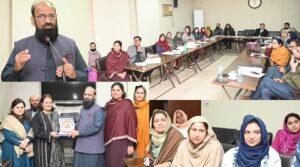Noble “Take the path of rights to end AIDS,“ The report describes how stigma, discrimination and punitive laws hinder progress in the fight against HIV.
Despite significant progress in HIV treatment and prevention, human rights violations continue to block access to essential services.
In 2023, 630,000 people died from AIDS-related illnesses and 1.3 million people contracted HIV.
The challenge of human rights
Marginalized communities, including women, girls, and LGBTQ+ (lesbian, gay, bisexual, transgender, queer, and other) individuals, continue to be disproportionately affected.
Sub-Saharan Africa clearly illustrates this disparity: every day, 570 young women aged 15 to 24 acquire HIV, a rate three times higher than that of their male peers.
Globally, 9.3 million people living with HIV do not receive life-saving treatment.
“Discrimination and violence against girls must be addressed as a health and human rights emergency,” said Nomonde Ngema, a 21-year-old HIV activist.
Criminalization hinders progress
Punitive laws targeting marginalized communities exacerbate the crisis. In 2023, 63 countries still criminalized same-sex relationships.
The prevalence of HIV among gay men and other men who have sex with men is five times greater in these countries than in those where no such laws exist.
“Punitive laws and policies keep vulnerable people from the help they need to prevent HIV, test for HIV, and treat HIV,” said Axel Bautista, Community Engagement Manager at MPact Global Action for Gay Men’s Health. & Rights.
“Instead of punishing marginalized communities, governments must defend their human rights,” he emphasized.
The 2021 UNAIDS Political Declaration to End HIV/AIDS called for the elimination of restrictive laws by 2025, but progress remains slow.
Closing the innovation gap
Scientific advances, such as long-acting injectable medications, offer hope, but remain inaccessible to many due to high costs and limited production.
“Life-saving medical tools cannot simply be treated as commodities,” said Alexandra Calmy, HIV lead at Geneva University Hospitals.
“The revolutionary therapeutic and preventive options currently being developed must be made accessible without delay to achieve universal reach.”
The report calls for a human rights-focused approach to ensure equitable access to these life-saving innovations.
Listen to our interview with Dr Angeli Achrekar, Under-Secretary-General and Deputy Executive Director of UNAIDS:
Voices of change
The UNAIDS report expands the perspectives of world leaders, including British singer and songwriter Elton John, Irish President Michael D. Higgins and HIV activist Jeanne Gapiya-Niyonzima.
“As long as HIV is seen as a disease for ‘others’, not so-called ‘decent people’, AIDS will not be defeated. Science, medicine and technology may be the “what” to end AIDS, but Inclusion, empathy and compassion are the ‘how’.”wrote Elton John.
President Higgins echoed this sentiment: “Delivering on the commitment to ending AIDS as a public health threat is a political and financial choice. The time has come to choose the right path.”
A global call to action
As the world approaches the 2030 deadline, UNAIDS emphasizes that ending AIDS is not just a health issue: It is a human rights mandate.
By addressing inequalities and ensuring equitable access to services, the international community can achieve its shared goal of ending AIDS as a public health threat.




